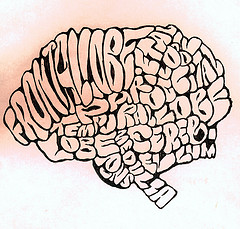Do you ever wonder why it is so difficult to communicate when you are upset? In the moments when you would most like to clearly speak about your feelings and thoughts, do you find yourself stuttering, confused, and verbally frustrated?
The source of your problem may be in the structure of your brain! Neuroscientist Paul MacLean coined the term “triune brain” to describe his theory that there are three distinct but interconnected layers of the human brain: the brain stem, the limbic system, and the cerebral cortex. A complex network of nerves connects the limbic system and the cerebral cortex, linking your thoughts and emotions.
But, this is not a perfect system, especially when you are under stress. Many of your deepest feelings are experienced through the limbic system but it can be a difficult translation through the more logical cerebral cortex and into language.
You do however have in your capacity a tool that can make a difference: empathy. Your ability to sense the emotional pain of another person (and yourself) resides in your limbic system. However, when you actively use empathy, you also employ your cerebral cortex to make observations and reflections about your own and another person’s experience. This can help both regions of your brain work together and help you communicate more clearly!
Here are some basic steps for using empathy to communicate more clearly:
1. Begin by noticing your own feelings with as much compassion as possible. This mindful observing will begin the process of engaging both the limbic and cerebral regions of your brain.
2. Consider the perspective of the other person and make some guesses about what they are feeling and needing. Set aside your your criticisms as much as possible.
3. Instead of stumbling to force your feelings into a logical argument, simply share what exactly you are feeling. You might be surprised how just naming a feeling helps you to feel more clear.
If you want to learn more about effective communication, my good friend LaShelle Chard offers some very helpful workshops.





Thank you for this tips, communication is really important.